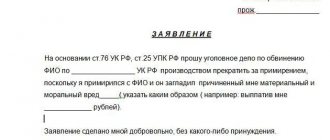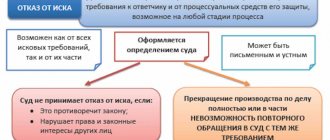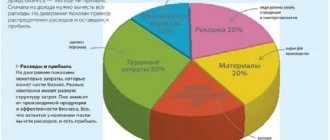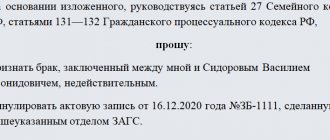Anyone who has ever faced the need to go to court knows that the proceedings can drag on for many months. But not every claim that is submitted to a judge ends in litigation. The court may refuse to initiate proceedings in the case, or the plaintiff, in turn, may withdraw his claims against the defendant in order to prevent further continuation of the process.
The reasons why applicants withdraw their claims can vary widely. This includes a loss of interest in the process, awareness of the obvious unfoundedness of one’s demands, a decision to forgive the defendant’s debt, a peaceful resolution of the conflict, etc. In all of these cases, plaintiffs tend to ask the same questions. How to withdraw a statement of claim from court? In what form should this be declared? Can a judge refuse such a request? For what reason could this situation happen? Read about it in this article.
Legal grounds
The decision to abandon a claim can significantly change the course of judicial consideration, therefore, the abandonment of a claim under the Code of Civil Procedure of the Russian Federation is handled especially carefully.
There are conditions established in the Code of Civil Procedure of the Russian Federation for the use of this right:
- voluntariness of the decision (the judge checks this circumstance without fail);
- the possibility of filing a corresponding petition at any time during the consideration of the case. In practice, they most often refuse during the pre-trial preparation of the case;
- presentation of a petition only by the plaintiff or plaintiffs jointly or by a representative, if such authority is separately indicated in the power of attorney (Article 54 of the Code of Civil Procedure of the Russian Federation);
- the opportunity to waive claims either in full or in part (a partial waiver of a claim in civil proceedings looks like a reduction in the amount to be collected, or the removal, for example, of non-property claims).
Refund of state duty
When filing an application with the court, a state fee must be paid.
Its size is established by Art. 333.19 Tax Code of the Russian Federation. Funds are transferred to the state treasury before the case is accepted into proceedings. If the plaintiff decides to abandon the claims, then he may qualify for a refund of the state duty. The grounds for receiving funds are specified in Art. 333.40 Tax Code of the Russian Federation:
- overpayment;
- refusal to accept the claim;
- termination of legal proceedings;
- refusal of the claim.
If during the consideration of the case the parties decide to enter into a settlement agreement, then the plaintiff will be able to receive only half of the amount paid. If the defendant voluntarily fulfilled his obligations, the state duty is not refunded.
To obtain a refund, you must apply to the court department.
In addition to the application, the following documents must be presented:
- a receipt for payment of the fee to the treasury;
- identification;
- a copy of the court ruling.
The application is drawn up in two copies. It states:
- name of the judicial authority;
- information about the applicant;
- details of the claim;
- bank account number for receiving funds;
- list of attached documents.
The application must indicate the date and personal signature of the plaintiff or his representative. One of the copies remains in the court office, the other - with the applicant. The date of incoming correspondence is indicated on the document. The petition must be considered within 1 month from the date of receipt by the official.
If the claim is rejected, the state fee is returned in full. If the plaintiff has changed the requirements, abandoning some of them, then the state fee will be recalculated and partially transferred to the account specified by the applicant.
When claims are waived
The law does not separately indicate the reasons for making such a decision, and this is quite logical: in practice there are many situations. The main thing is that the plaintiff acted strictly voluntarily and was aware of the consequences. The reasons for the court are not of great importance if the decision does not violate the rights of other persons and does not contradict the current legislation.
Typically, already stated claims are waived in the following cases:
- the defendant fulfills the obligations imposed on him, that is, a waiver of the claim is issued in connection with the voluntary satisfaction of the requirements;
- termination by the defendant of actions that violate the rights of the claimant;
- loss of relevance of the dispute due to the applicant’s receipt of information, the occurrence of certain events and for other reasons;
- loss of interest in the dispute, etc.
Withdrawal of the statement of claim
Can the plaintiff change his mind and withdraw the no claim statement?
Before the start of proceedings in a civil case, the parties may reconcile, the alleged defendant may voluntarily satisfy the demands, the applicant may realize the unlawfulness and inexpediency of the stated demands or forgive the debt, etc. Not all lawsuits that are filed in court ultimately end in litigation. The circumstances for this may be different, for example, the plaintiff refuses his claims or the court refuses to proceed in this case.
Plaintiffs may waive the demands they previously made in the following cases: there is no interest in the final resolution of the issue that has arisen, a peaceful resolution of the conflict, etc.
To do this, you will need to write a letter to the court where your case is pending. There are no strictly regulated frameworks for writing such letters, but you should still adhere to the official style and state everything accurately, briefly and to the point, without forgetting that you are addressing the letter to the court, and not to your friend. The letter indicates the reason for which you sent the claim to the court, be sure to write the full name of the court, its address, the full position of the judge, his last name and initials, and also indicate your details, address, contact telephone number where you can be contacted.
Application requirements
Article 39 of the Code of Civil Procedure of the Russian Federation does not contain requirements for the plaintiff to refuse the claim, even for its execution in writing; how to refuse to consider the statement of claim in a civil case is decided by the plaintiff independently (in writing or orally). The refusal may be recorded in the minutes of the court hearing under the signature of the interested person with an explanation of the consequences. But most often the document is drawn up in writing and presented to the court at a court hearing or through the office. It is allowed to be sent by registered mail with notification (to verify the date and fact of receipt of the document by the court) or through the court’s website if there is a qualified electronic signature.
There is no unified form or form with mandatory details. The main thing is that the plaintiff or an authorized representative signs the document and indicates in it that the claims are withdrawn.
Withdrawal of a claim and response to a claim
Despite the consonance, the two terms in question have completely different meanings. Withdrawal of a claim implies a waiver by the plaintiff of the claims regarding the stated dispute. This usually happens if the situation was resolved in the best possible way without the participation of Themis. It often happens that defendants, having learned about the impending trial, rush to resolve the issue amicably: debtors pay back money, persistent alimony defaulters more than pay off their debt, and noisy neighbors move out. In such cases, the plaintiff has the right to withdraw his application, explain the reasons for refusal and stop the judicial machine
The withdrawal of a claim is carried out by its “author”, that is, the plaintiff. A response to a claim, on the contrary, is usually filed by the defendant (in rare cases, by third parties or other participants in the process). In the text of the document, the applicant explains his position in the dispute with the plaintiff:
- or provides counterarguments for each point of the claim, challenging their content;
- or explains why the situation turned out this way and not otherwise.
The response to the claim is often accompanied by a petition from the defendant with a request to consider the case in his absence. Then, when making a decision, the judge will take into account his position set out in the recall document.
How to compose correctly
In order for the court to accept without objection a motion to dismiss the claim, it must be presented competently and clearly. It is not necessary to refer to legal norms, although it is advisable to indicate that the citizen understands that the case will be terminated without the possibility of its resumption. The usual details for this form are:
- a heading indicating the court and parties to identify the application;
- name of the form;
- text expressing your decision and motivation;
- signature and date.
Here is an example of a waiver of claims in civil proceedings, drawn up according to all the rules:
| To the Kurgan City Court Kurgan, st. Dzerzhinsky, 35 from the plaintiff: Zalivny Ivan Vladilenovich Kurgan, st. Burova-Petrova, 35-3 Case No. 253/999-2019 Statement I, Ivan Vladilenovich Zalivnoy, filed a lawsuit against Kroshny Kazimir Innokentievich for the recovery of 50,000 (fifty thousand) rubles under the car purchase and sale agreement. Due to the fact that the defendant transferred this amount to me, I consider it necessary to abandon the claim. I renounce the claim voluntarily, the consequences provided for in Article 221 of the Code of Civil Procedure of the Russian Federation (if the application is accepted, the proceedings in the case are terminated by a court ruling and in this case, repeated appeal to the court in a dispute between the same parties, about the same subject and on the same grounds is no longer allowed ), I know and understand. Based on the above, guided by Article 39 of the Civil Procedure Code of the Russian Federation, Ask: 1. Accept the waiver of claims. |
One more example:
Changes in the claim
When considering a case in court, new circumstances may arise, as a result of which the requirements or the subject of the dispute may change.
In this case, you can make changes to the claim (Article 39 of the Code of Civil Procedure of the Russian Federation). The legislative act allows for amendments to be made either to the subject or to the grounds of the dispute. Changes to both items at once are not allowed. If there is a need to adjust the subject and basis, then you will need to file a new claim. Only the plaintiff can make changes to the petition. If the requirements have decreased, then the plaintiff has the right to claim a refund of part of the paid state duty. The claim can be adjusted an unlimited number of times; no restrictions are imposed by law.
The court may refuse to accept an application to abandon the claim if, as a result of the consideration of the case, it is impossible to reach an amicable agreement, for example, when the case concerns the deprivation of parental rights. In this situation, the interests of not only the participants in the process are affected, but also of third parties, minor children. The case will be closed only after it has been considered on its merits and an appropriate decision has been made.
If circumstances change, the initiator of the lawsuit may change his mind and withdraw the claim. But it is important to understand the consequences of such a decision. The court will not re-accept an application in this case to the specified citizen. A waiver of the claim is issued if the parties have reached an amicable agreement or the defendant has voluntarily complied with all specified requirements. The official may not accept the petition if the rights of third parties are affected. A ruling is made on this, after which the consideration of the case on its merits continues.
Money spendings
In accordance with Art. 101 of the Code of Civil Procedure of the Russian Federation, legal expenses of the party who made such a decision are not compensated. In addition, the defendant has the right to file an application for reimbursement of expenses incurred in connection with the conduct of the case, which is granted by the court. Legal expenses include both state fees and payment for the services of a representative, compensation for time spent, travel expenses, etc. There is only one exception to this rule: when the defendant satisfies the claim after filing an application with the court.
Carrying out refusal in civil proceedings
The application form can be submitted in oral or written format. The judicial authorities simultaneously check the powers of the party’s representative. The refusal is drawn up at any stage of the proceedings, including the first instance and the appeal stage. The recognition of the claim by the defendant will be taken into account, which becomes another form of completion of the case. Thus, the party freely expresses its will to take measures to fulfill all points of the claim.
A positive decision by the court is not made when there is a connection with unfair actions and abuse of procedural rights. Another form of closure is a settlement agreement. This is how a voluntary transaction between subjects is carried out. Individuals negotiate independently and approve a set of measures to fulfill a number of obligations. If the participants evade the accepted settlement agreement, the fact is recorded in the court case.
This is important to know: State duty for a counterclaim in civil proceedings
Court approval is mandatory. The agreement comes into force immediately after consideration by the authorities. This aspect makes it possible to satisfy the demands of both the plaintiff and third parties without lengthy proceedings. It will no longer be possible to file a similar claim if a settlement agreement has been accepted.
Consequences
First of all, the Civil Procedure Code of the Russian Federation associates the consequences of abandoning a claim with the impossibility of filing this application again. In accordance with Art. 220 of the Code of Civil Procedure of the Russian Federation, the court case is terminated with the acceptance of such a petition by the court. This means that between the same parties on the same dispute it will not be considered again. This is the rule set out in Art. 220 of the Code of Civil Procedure of the Russian Federation, there are no exceptions to it. In addition, the negative consequences include the need to incur legal costs and pay them to the defendant if there is a corresponding application from him.
Is it possible to ask to withdraw a claim that is already under investigation?
According to generally known laws, it is possible to withdraw a claim, but not always. Whether they will be allowed to pick it up depends on the qualifications of the personal lawyer and the type of case. There are two types of processes, and each has its own characteristics.
Consideration of a claim in court
According to civil law
Since this type of process is not complicated and arises from the desire of one of the parties, you can pick it up at will by filling out some papers. Most often, applications are withdrawn due to the fact that, without the help of a district or magistrate court, an agreement was made that satisfied both parties.
How to withdraw a statement of claim from court (sample application):
- If you still have a sample of the original claim, you can rewrite the header from it - they are filled out the same way.
- Next, the center briefly describes the essence of the case that the plaintiff wants to withdraw.
- After this, the reason should be mentioned. It is best to write about reconciliation, because other reasons (moving abroad, for example) will not be considered a valid reason.
- Be sure to attach a copy of the reconciliation agreement or something confirming the previous point.
- Next, as in the lawsuit, there is a list of attached documents, ways to contact both parties, a handwritten signature and date.
Civil Code of the Russian Federation
Criminal law
In this direction, withdrawing the claim will be much more difficult, and in some cases even impossible. If the claim moves to the “accepted into action” status, it will no longer be possible to withdraw it.
This happens because this type of process poses a public threat; consideration and punishment of the perpetrator concerns not only him and the applicant, but also all citizens. This applies to cases involving minors, murder, corruption and rape.
No court will turn a blind eye to this, because everything cannot be resolved by agreement.
Additional Information! The concession can only apply to robbery trials; here the law gives the right to resolve everything peacefully and withdraw the application.
If a citizen has a theft and he and a second person have decided everything, then you will need to write a statement:
- If you still have a sample of the original claim, you can rewrite the header from it - they are filled out the same way.
- The center describes in full (without abbreviations) all the circumstances and reasons why the applicant wishes to terminate the proceedings. Often this reason is the full return of the stolen property or compensation in cash equivalent.
- Be sure to include all checks, bank statements, or eyewitness confirmations of the veracity of the words described in the previous paragraph. There are cases when third parties are involved in the claim, it is necessary to prove that they were also compensated.
- And at the end, as in the claim, a list of attached documents, ways to contact both parties, a handwritten signature and date are added.
When refusal of a claim is impossible
It is impossible to waive a claim brought to court if, in addition to you, the case involves the interests of third parties, also expressed in the claim.
This is important to know: Deadline for filing a claim with the arbitration court
Should you look for a solution yourself or entrust the work to a lawyer?
It is better to entrust the work of legal representation to a lawyer or lawyer. Believe me, he knows the subtleties and nuances that will help you not only save time, but avoid critical mistakes. And you can find experienced lawyers from any city in Russia on YurProvodnik.
Leave a description of the problem and lawyers will give advice and make the best offer
Search for experienced lawyers and attorneys near you
Work with experienced lawyers at fixed prices
After the claim is abandoned and the proceedings are completed, the applicant is returned the application itself and all attachments to it, as well as the original receipt for payment of the duty and a certificate for the return of these amounts (state duties) from the relevant budget. In order to receive a refund of the paid duty, you must present to the tax office a certificate issued in court and a ruling on the completion of the proceedings.
The legal system “Consultant Plus” contains an article by lawyer M.I. Polyak.
Recognition of a claim in a lawsuit.
In Part 1 of Art. 39 Code of Civil Procedure of the Russian Federation, part 3, art. 49 Arbitration Procedure Code of the Russian Federation, Part 3, Art. 46 CAS RF establishes a provision according to which the defendant has the right to admit the claim in whole or in part.
Acknowledgment of a claim is an administrative action of the defendant, meaning unconditional consent to satisfy the plaintiff’s demands. It is a free expression of will, corresponding to the subjective right of the defendant, and is aimed at ending the case by making a decision to satisfy the claim (Resolution of the Tenth Arbitration Court of Appeal dated December 12, 2016 No. 10AP-16151/2016 in case No. A41-17788/16, Resolution of the Tenth Arbitration Court of Appeal dated September 20, 2016 No. 10AP-9820/2016 in case No. A41-14049/16).
In form, recognition of the claim can be either a separate written statement of the party, which is attached to the case materials, or an entry in the minutes of the court session, which is confirmed by the signature of the defendant (Article 173 of the Civil Procedure Code of the Russian Federation, clause 9, part 2, Article 153 of the Arbitration Procedure Code of the Russian Federation, Part 1 of Article 156 CAS RF). In terms of content, recognition of the claim can be complete (recognition of all the plaintiff’s claims) or partial (recognition of a number of the plaintiff’s claims) (part 3 of article 49 of the Arbitration Procedure Code of the Russian Federation, part 3 of article 46 of the CAS RF).
As defined in Art. 54 Code of Civil Procedure of the Russian Federation and Part 2 of Art. 62 Arbitration Procedure Code of the Russian Federation, clause 5, part 2, art. 56 CAS RF, part 1 art. 157 CAS RF, recognition of the claim can be made either by the defendant in the case or by his representative who has the appropriate authority (Appeal ruling of the Irkutsk Regional Court dated 06/28/2016 in case No. 33-8828/2016, Appeal ruling of the Moscow City Court dated 02/24/2015 in case No. 33-5699). The authority to acknowledge a claim must be separately specified in the power of attorney issued to the representative.
In practice, cases are possible when the defendant does not file an objection to the statement of claim, does not appear at court hearings, and does not in any way formulate his own position in relation to the stated requirements. In such cases, these circumstances may lead to a decision to satisfy the claims made by the plaintiff, but the “silence” of the defendant cannot be considered as recognition of the claims. Since, from the point of view of procedural legislation, recognition of a claim requires the will of the defendant, which will be expressed by filing an application for recognition of the claim (Appeal ruling of the Supreme Court of the Republic of Bashkortostan dated June 30, 2015 in case No. 33-9901/2015).
It should be noted that there is such a thing as an admission of a fact, which must be distinguished from an admission of a claim. When admitting a fact, the defendant admits only individual facts referred to by the plaintiff, but not the stated claim. The legal consequences of these procedural actions are different: if the defendant recognizes the claim, the court makes a decision to satisfy the claim in full or in part (Part 3 of Article 173, Part 4 of Article 198 of the Code of Civil Procedure of the Russian Federation, Part 3.4 of Article 170 of the Arbitration Procedure Code of the Russian Federation, Part 2 of Article 304 CAS RF), if a fact (circumstance) is recognized, the party is exempt from the need to prove this fact (circumstance) (Part 4 of Article 65 CAS RF, Part 5 of Article 70 of the Arbitration Procedure Code of the Russian Federation, Part 2 of Art. 68 Code of Civil Procedure of the Russian Federation).
The procedure and consequences of recognizing a claim.
Recognition of a claim by the defendant provides for a mandatory explanation by the court of the consequences of the action taken.,
as well as the court’s verification of the legality of the defendant’s actions, which consists in the court’s refusal to recognize the defendant’s claim if this is contrary to the law or violates the rights of third parties (part 2 of article 173 of the Code of Civil Procedure of the Russian Federation and part 2 of article 39 of the Code of Civil Procedure of the Russian Federation, part 2 of article 157 CAS RF, Part 5, Article 49 of the Arbitration Procedure Code of the Russian Federation) or there are signs of abuse of rights (Appeal ruling of the Bryansk Regional Court dated May 26, 2015 in case No. 33-2021/2015).
As noted above, recognition of the claim can be made in the form of a separate written statement attached to the case materials, or in the form of a corresponding entry in the minutes of the court hearing.
The court's acceptance of the claim by the defendant and the issuance of a decision in connection with this to satisfy the stated requirements in accordance with Art. 173 of the Code of Civil Procedure of the Russian Federation is allowed only at the stage of judicial proceedings, during which the specified application is subject to consideration (clause 32 of the Resolution of the Plenum of the Supreme Court of the Russian Federation of June 24, 2008 N 11 “On the preparation of civil cases for trial”).
It should be noted that when making a decision, the court does not have the right to accept recognition of the claim or recognition of the circumstances on which the plaintiff bases his claims made by a lawyer appointed by the court as a representative of the defendant on the basis of Art. 50 of the Code of Civil Procedure of the Russian Federation, since this, against the will of the defendant, can lead to a violation of his rights (clause 10 of the Resolution of the Plenum of the Supreme Court of the Russian Federation of December 19, 2003 N 23 “On the court decision”).
Recognition of a claim must be a free expression of will expressed by the defendant in accordance with his subjective right. When accepting the recognition of the claim, the court makes a decision, in the reasoning part of which it refers to the recognition as the basis for satisfying the claim. If there are possible violations of the rights of other persons, both those involved and not involved in the case, the court’s acceptance of the claim by the defendant is unlawful (Appeal ruling of the Altai Regional Court dated May 4, 2016 in case No. 33-4978/2016).
In Part 2 of Art. 173 Code of Civil Procedure of the Russian Federation and Part 2 of Art. 157 CAS RF states that the court explains to the defendant the consequences of recognizing the claim. An explanation of the consequences of the defendant’s procedural action is necessary so that the party understands that its behavior is the basis for the court to perform a procedural action. The Arbitration Procedure Code of the Russian Federation does not contain any norms.
If the defendant recognizes the claim and the court accepts it, a decision is made to satisfy the claims made by the plaintiff (part 3 of article 173 of the Code of Civil Procedure of the Russian Federation, part 2 of article 304 of the CAS RF). If the defendant recognizes the claim, the reasoning part of the court decision can only indicate the recognition of the claim and its acceptance by the court (clause 3, part 4, article 170 of the Arbitration Procedure Code of the Russian Federation).
If there were no procedural violations when accepting the recognition by the court, then challenging the court decision made taking into account the recognition of the claim by the defendant cannot lead to the cancellation of the court decision in this part (Appeal ruling of the Moscow City Court dated July 12, 2016 in case No. 33-26982 /2016).
In accordance with Part 2 of Art. 157 of the Code of Arbitration Code of the Russian Federation, a feature of administrative proceedings is the presence of categories of cases in which recognition of an administrative claim is not allowed. It should be noted that at the moment the relevant category of cases remains unclear.
How to withdraw a claim from court without consideration
Expert opinion
Gusev Vladislav Semenovich
Lawyer with 10 years of experience. Specializes in criminal law. Member of the Bar Association.
When the case has not yet begun to be considered and has not reached the courtroom, it is much easier, however, there are pitfalls that you need to know.
Cases falling under the criminal code are more difficult to terminate
For civil case
Civil cases do not affect the privacy or safety of anyone other than those directly involved. And this fact gives the latter every right to withdraw their application back. All you need to do is submit an official return request. The application is compiled as standard from a header (as described above), an explanation of your request.
On a note! The difference from a claim already transferred in the process is that the reason may be not only a conciliation agreement, but also other circumstances, be it even moving to the country. The main thing is that they are adequate and supported by documents.
For a criminal case
In order to stop the case, according to the Arbitration Procedure Code of the Russian Federation, you need to go to the police station to which the application was previously sent. There are two ways:
- the case was not brought to court;
- have already been given, but no meetings have been scheduled yet.
In the first case, an application is written on the same day to withdraw the claim. In the second case, the application must be written and sent to the court. In the first and second cases, the court can either approve it or reject it, declaring the defendant dangerous to society.
For arbitration case
The rules of the Republic of Kazakhstan allow you to withdraw or abandon part of the claim until the minutes of the meeting are signed and a verdict is rendered. In this case, a statement is also written. This refusal is checked by the judge to ensure that it does not contradict the law.
Note! In not one of the cases and types of proceedings, the applicant is not refunded the paid state duty and costs of legal proceedings. You will have to say goodbye to these funds.
Justified reasons
Every legal procedure requires reasons for its implementation. If the court refuses to accept the claim, there are various reasons for this:
- this citizen should not make demands, since his interests were not violated;
- the jurisdiction chosen is not for this legal proceeding;
- the application was not properly completed.
Other situations arise during court proceedings when the plaintiff decides to change the course of the case and withdraw the application from the court. The statement of claim, a sample refusal presented in example 1, may have lost its relevance on the basis of a peaceful resolution of the conflict, or the initiator of its filing has exhausted his interest in a lengthy litigation.







